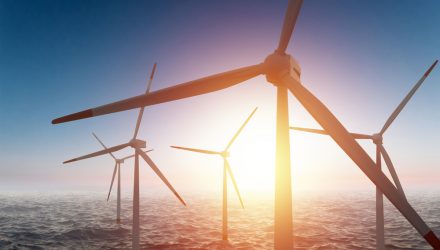A recent article in MarketWatch covered a bevy of clean energy exchange-traded funds (ETFs) that investors can look at to shore up their portfolios in the energy sector. The space offers investors a wide variety of alternatives that they can explore, including broad-based funds or specific power sources like solar energy.
Per the article, playing “the alternative, clean-energy space can mean focusing on actual generators of sustainable electricity, but it can also mean holding shares of various electrical equipment and component makers, semiconductor manufacturers and traditional industrial and energy companies with a newer focus on sustainability. It can even mean electric vehicle manufacturers. Half of the clean-energy ETFs listed below hold shares of Tesla Inc.”
At the top of MarketWatch’s list due to its sheer size in assets is the iShares Global Clean Energy ETF (ICLN). The fund seeks to track the S&P Global Clean Energy Index. The index is designed to track the performance of approximately 30 clean energy-related companies.
Other funds to consider in the list:
- ALPS Clean Energy ETF (ACES): seeks investment results that correspond (before fees and expenses) generally to the performance of its underlying index, the CIBC Atlas Clean Energy Index. The underlying index utilizes a rules-based methodology developed by CIBC National Trust Company, which is designed to provide exposure to a diverse set of U.S. and Canadian companies involved in the clean energy sector including renewables and clean technology. The fund is non-diversified.
- KraneShares MSCI China Environment Index ETF (KGRN): seeks to provide investment results that correspond to the price and yield performance of MSCI China IMI Environment 10/40 Index. The underlying index is a modified, free float-adjusted market capitalization weighted index designed to track the equity market performance of Chinese companies that derive at least a majority of their revenues from environmentally beneficial products and services, as determined by MSCI Inc.
- Invesco Solar ETF (TAN): seeks to track the investment results (before fees and expenses) of the MAC Global Solar Energy Index (the “underlying index”). The underlying index is designed to provide exposure to companies listed on exchanges in developed markets that derive a significant amount of their revenues from the following business segments of the solar industry: solar power equipment producers including ancillary or enabling products; etc.
- VanEck Vectors Low Carbon Energy ETF (SMOG): seeks to replicate as closely as possible, before fees and expenses, the price and yield performance of the Ardour Global IndexSM (Extra Liquid). “Low carbon energy companies” refers to companies primarily engaged in alternative energy, including renewable energy, alternative fuels and related enabling technologies (such as advanced batteries).
For more market trends, visit ETF Trends.


